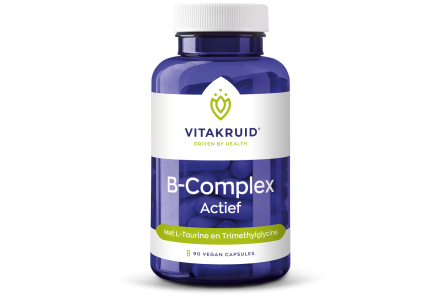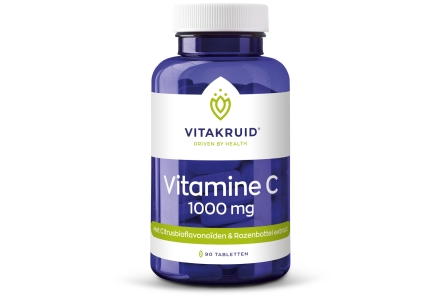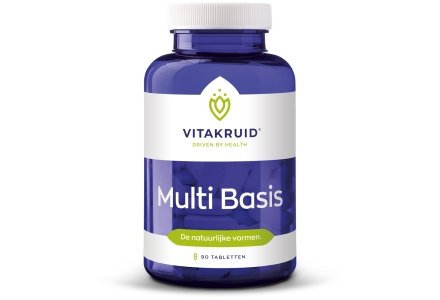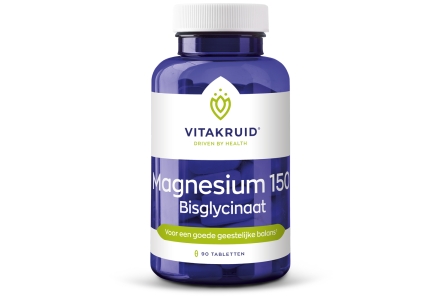
In modern society, alcohol is an important part of social interactions and relaxation, but its impact on our health is often underestimated. In this blog, we dive deeper into the complex relationship between alcohol consumption and the health of our bodies and brains. Not only do we explore the short- and long-term effects of alcohol consumption, but we also come up with advice around alcohol consumption and pay attention to the relationship between alcohol consumption and possible deficiencies in essential nutrients that can occur in the process. Whether you drink occasionally or consume regularly, it is essential to be aware of the effects alcohol can have on your overall health.
The Influence of Alcohol on the Human Body
Alcohol has a wide range of influences on the human body, ranging from short-term effects to long-term damage. Short-term effects of alcohol intake occur particularly in the brain, digestion, blood vessels and heart, and in the kidneys and urinary system.
In the longer term, with long-term alcohol abuse, damage can occur to the body, think liver disease, cognitive decline and addiction, heart disease, increased risk of various types of cancer, and in addition, alcohol weakens the immune system. This makes the body more susceptible to infections.
Alcohol can also contribute to mental disorders such as mood disorders, anxiety and depression.
In short, alcohol has an extensive impact on virtually every organ system in the body. Excessive or long-term use of alcohol can cause serious, life-threatening conditions.
Alcohol metabolism: The path of Alcohol through the Body
The metabolism of alcohol in the human body is a complex process that takes place in several stages, from absorption to excretion.
Absorption: Once alcohol is drunk, it enters the stomach through the mouth and esophagus. A small portion of the alcohol may already be absorbed in the stomach. The presence of food in the stomach can slow the absorption of alcohol. A full stomach causes alcohol to enter the small intestine more slowly, where most absorption occurs. After absorption in the small intestine, alcohol enters the bloodstream through the intestinal wall.
Diffusion Through the Body: Once alcohol is absorbed, it is rapidly diffused through the bloodstream to various organs and tissues. Alcohol is soluble in both water and fat, allowing it to spread easily throughout the body.
Because of its good blood flow, alcohol quickly reaches the brain, where it exerts its effects on the central nervous system.
Metabolism: The liver is the main organ for breaking down alcohol. The liver breaks down alcohol into acetaldehyde. This is a toxic irritant that affects the organs and is responsible, among other things, for the hangover. After this, the acetaldehyde is broken down into acetic acid. In the third and final step, acetic acid is broken down into water and carbon dioxide.
Excretion: Water and carbon dioxide are excreted through urine and breathing.
How Alcohol Affects the Brain
Alcohol affects the brain in different ways, depending on the amount and frequency of use. In the short term, it reduces inhibitions by increasing the activity of certain neurotransmitters, which can lead to impulsive behavior and impaired coordination. It also disrupts memory and reduces judgment, which can cause risky decisions.
Long-term and heavy alcohol use can lead to the loss of brain tissue and permanent brain damage, including memory loss, cognitive decline, and conditions such as alcohol-related dementia and Korsakov's syndrome. It also increases the risk of addiction and mental illness.
Alcohol levels and the effects on our behavior
Although the effect of certain amounts of alcohol depends on several factors such as body weight, gender, age, genetics, health status, hydration and tolerance, we give below an indication where we assume an experienced drinker:
0 to 0.5 promille, 1-3 glasses, relaxed, disinhibited: Your pulse and breathing speed up. You get a warm feeling. Taste, smell and vision deteriorate and you feel less pain. Your appetite increases and you need to urinate more often.
0.5 to 1.5 promille, 3-7 glasses, tipsy: Mood and behavior change markedly. You overestimate yourself. Your memory, reaction time and coordination decrease, and judging situations becomes more difficult. Left and right of your facial axis you perceive less and less.
1.5 to 3 promille, 7-15 glasses, drunk: All previously mentioned effects intensify. You also start acting overly emotional and your self-criticism disappears. Your face turns red, swells and your pupils enlarge. You may experience nausea and vomiting.
3 to 4 promille, 15-20 glasses, listless: Your senses dull and you are confused and absent-minded; what you hear and see barely penetrates you.
4 promille and up, 20-25 glasses and up, knockout, alcohol poisoning: Your breathing and pulse slow down so much that you can go into a coma and even die: your breathing stops or you go into cardiac arrest.
The Long-Term Effects of Alcohol Consumption
As discussed earlier, long-term, long-term alcohol consumption can cause damage to the body. We discuss in more detail below the link between alcohol and cancer, the impact of alcohol on sleep and cognitive function, alcohol dependence and the risk of Korsakov's syndrome.
Alcohol and Cancer: the Link Explained
Alcohol consumption is strongly linked to an increased risk of several types of cancer. When alcohol is broken down in the body, it creates acetaldehyde, a harmful substance that can damage DNA and increase the risk of mutations.
In addition, alcohol can cause hormonal changes, such as increased estrogen levels, which contribute to the development of certain cancers, such as breast cancer.
Alcohol also interferes with the absorption of essential nutrients and can enhance other carcinogens, such as those found in tobacco.
The most commonly associated cancers are those of the mouth, throat, esophagus, liver, breast, and colon.
The risk of cancer increases with the amount of alcohol consumed, and even moderate consumption can be harmful.
Alcohol's impact on sleep and cognitive functions
Impact on sleep: Alcohol may initially have a calming effect, helping people fall asleep faster. However, the impact on sleep is ultimately predominantly negative because it also causes disrupted sleep cycles, think REM sleep, and fragmentation of sleep because, due to the stimulant effect of alcohol, you will sleep lighter and wake up more often during the night.
Alcohol can also contribute to the worsening of breathing problems such as sleep apnea because it relaxes the muscles in the throat. This, in turn, can lead to loud snoring and dangerous interruptions in breathing during sleep.
Impact on cognitive functions: Alcohol negatively affects memory, concentration, and judgment in both the short and long term. With chronic use, permanent damage to the brain can occur.
Alcohol abuse, dependence and the risk of Korsakov
Alcohol abuse, the regular drinking of alcohol with harmful consequences, can lead to dependence on alcohol. This means that the person not only experiences a strong craving for alcohol, but also experiences withdrawal symptoms when he or she stops drinking. Tolerance also plays a role in dependence, meaning it takes more and more alcohol to feel the same effects.
Dependence on alcohol can lead to serious health problems, including Korsakov's syndrome. Chronic alcohol use can lead to a deficiency of vitamin B1 (thiamine), which is crucial for brain function. This deficiency in this vitamin can eventually cause Wernicke-Korsakov syndrome, in which Korsakov syndrome causes severe, irreversible memory problems and brain damage. People with Korsakov have difficulty remembering new information and often unconsciously fill memory gaps with made-up stories.
Advice around Alcohol Consumption
The best advice is not to drink alcohol and otherwise to at least limit the intake, i.e. not to drink more than 1 glass of alcohol per day. It is also wise not to drink daily, schedule at least 2 alcohol-free days per week.
Avoid drinking a lot of alcohol in a short period of time as this can lead to acute health risks. Try to stagger your alcohol consumption and drink slowly when you drink.
Avoid alcohol during pregnancy, when taking certain medications, or if you have a health problem that can be aggravated by alcohol. And, of course, never drink if you plan to drive a car.
Alcohol and nutrition
Alcohol can interfere with the absorption of essential nutrients. Eat a balanced diet and ensure adequate intake of vitamins and minerals, especially if you drink regularly. You may also consider nutritional supplements because they can help reduce the negative effects of alcohol on the body, especially since alcohol can impair the body's ability to absorb and use certain nutrients.
In particular, with regular alcohol consumption, you can become deficient in:
Vitamin B1 (Thiamine): Alcohol can thoroughly interfere with the absorption of vitamin B1 (thiamine), which is important for brain function and the nervous system. Long-term vitamin B1 deficiency can have serious consequences such as depression, anxiety and memory loss. This in turn can lead to brain diseases resulting in, for example, uncontrolled motor skills and confusion. And in the longer term, it can even lead to permanent brain damage such as in Korsakov's syndrome with irreparable memory loss.
Folic acid: Alcohol consumption reduces the absorption of folic acid, which is essential for DNA production and red blood cell production.
A vitamin B complex supplement may be particularly helpful, as B vitamins are crucial for energy production, brain function, and the nervous system. This is especially important for thiamine (B1) and folic acid (B9), which are often depleted by alcohol consumption.
Vitamin C and antioxidants: Alcohol can increase oxidative stress, which causes cellular damage.
Magnesium: Alcohol consumption can lead to magnesium deficiency, which can cause muscle cramps, fatigue, and sleep disturbances. Magnesium supplements can help supplement these deficiencies.
Omega-3 fatty acids: Omega-3 fatty acids, such as those found in fish oil or algae oil, can help reduce inflammation and support brain function. They also benefit the heart, which can be affected by excessive alcohol consumption.
Vitamin D: Alcohol can affect liver function, which affects vitamin D activation. A vitamin D supplement may be helpful, especially if you don't get enough sunlight.
Probiotics: Alcohol can disrupt gut flora, which can lead to digestive problems. Probiotics can help support healthy gut flora and improve digestion.
Multivitamins: A good multivitamin can help supplement general nutrients that may be deficient due to alcohol consumption, especially B vitamins, vitamin C, and zinc.
Although these vitamins and minerals are important when drinking alcohol, the very best thing, of course, is to reduce your alcohol consumption or stop altogether.
If you find yourself drinking more and more often or having trouble quitting, seek professional help first and foremost. Alcohol can be considered a socially accepted drug, from which you may experience withdrawal symptoms if you suddenly stop using it. Early intervention can help prevent serious problems.
Conclusion
Alcohol is a legal, socially accepted drug that is consumed on many social occasions. However, many people drink too much alcohol on a daily basis, creating a high risk of all sorts of problems including irreparable damage to your body with chronic alcohol abuse.
A healthy, varied diet with sufficient vitamins and minerals is essential for people who drink alcohol regularly. Dietary supplements such as multivitamins, B-complex, magnesium, and omega-3 fatty acids can help make up the deficiencies and reduce the negative effects of alcohol on the body. But of course, it is better to drink no alcohol or very little. If you find yourself drinking more and more often or struggling to stop, seek professional help first and foremost.
We hope you have gained a better understanding of the negative effects of alcohol on your health. At Meditech Europe, we are ready to support you in finding a healthy balance for your body and mind. We can also advise you on nutritional supplements, please contact us for more information.








